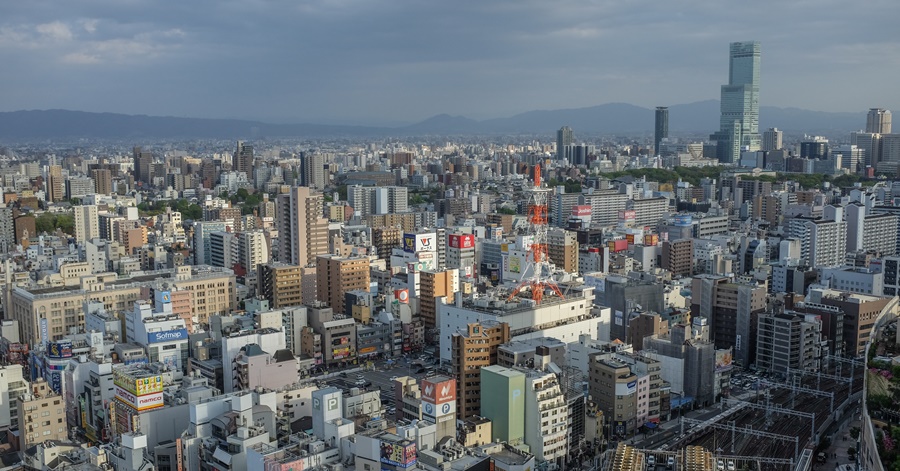Hospitals in Osaka, Japan’s second-largest city, are overwhelmed by a massive wave of new coronavirus infections, with beds and ventilators running out as tired doctors warn of a “system collapse” and advise against keeping the Olympics this summer.
Japan’s western area, home to 9 million people, is bearing the brunt of the pandemic’s fourth wave, accounting for one-third of the country’s death toll in May despite accounting for just 7% of the population.
Japan’s Second Largest City’s Healthcare System Chokes Amid COVID-19 Resurgence
The pace at which Osaka’s healthcare system was overwhelmed highlights the difficulties of hosting a major global sporting event in two months, particularly given that only about half of Japan’s medical staff has completed inoculations, the Japan Times reported.
“Simply put, this is a collapse of the medical system,” said Yuji Tohda, the director of Kindai University Hospital in Osaka. “The highly infectious British variant and slipping alertness have led to this explosive growth in the number of patients.”
Japan has avoided the massive infections that other countries have seen, but the fourth pandemic wave hit Osaka prefecture hard, with 3,849 new positive tests in the week ending Thursday.
This represents a more than fivefold increase over the previous three-month stretch.
Just 14 per cent of the prefecture’s 13,770 COVID-19 patients have been hospitalised, leaving the rest to fend for themselves. In contrast, Tokyo’s most recent hospitalisation rate is 37%.
A government advisory panel considers rates of less than 25% to be a cause for declaring a state of emergency.
By Thursday, 96 per cent of the 348 hospital beds set aside in Osaka for severe virus cases had been filled. According to officials, 17 people have died from the disease outside of the prefecture’s hospitals since March.
According to Toshiaki Minami, director of the Osaka Medical and Pharmaceutical University Hospital, the variant can make even young people very sick very easily, and once critically ill, patients find it difficult to recover (OMPUH).
“I believe that until now many young people thought they were invincible. But that can’t be the case this time around. Everyone is equally bearing the risk.”
Dr. Minami said that a supplier recently informed him that stocks of propofol, a key medication used to sedate intubated patients, are running very low, while Tohda’s hospital is running low on ventilators, which are critical for critically ill COVID-19 patients.
Caring for critically ill patients in the face of infection risk has taken a heavy toll on workers, according to Satsuki Nakayama, the nursing department head at OMPUH.
“I’ve got some intensive care unit (ICU) staff saying they have reached a breaking point,” she added. “I need to think of personnel change to bring in people from other hospital wings.”
READ NEXT: This is how Tokyo is Coping with COVID-19 100 Days Before the Olympics
